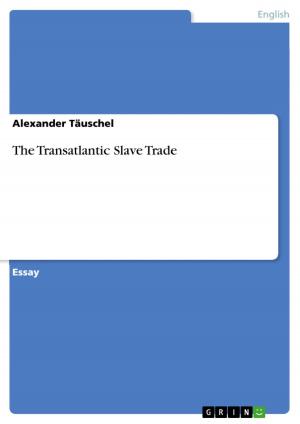The Future Of Election Forecasting Using Social Media Based Methods. Prospect or Pitfall?
A Literature Review
Nonfiction, Reference & Language, Language Arts, Communication| Author: | Marla van Nieuwland | ISBN: | 9783668093881 |
| Publisher: | GRIN Verlag | Publication: | November 24, 2015 |
| Imprint: | GRIN Verlag | Language: | English |
| Author: | Marla van Nieuwland |
| ISBN: | 9783668093881 |
| Publisher: | GRIN Verlag |
| Publication: | November 24, 2015 |
| Imprint: | GRIN Verlag |
| Language: | English |
Seminar paper from the year 2015 in the subject Communications - Media and Politics, Politic Communications, grade: 1,0, University of Constance, language: English, abstract: In 2013 Daniel Gayo-Avello captured the state of the art regarding election prediction with social media publishing a meta-analysis, the very first one in this field of study. Concluding after an extensive literature review, that the 'prevailing view [among scientists] is overly optimistic', Gayo-Avello declares three major problems, that have to be addressed by future research: 1) The need to produce a true forecast, that is published before the election. 2) The need to take into account the biases on Twitter, especially the unrepresentativeness of the sample. 3) The need to incorporate sentiment rather than just tweet volume. The research question of this paper is very similar to Gayo-Avello's meta-analysis, to give an overview of the current state of the art two years later, assess if the past problems and questions scientists raised have been discussed, and in the last step answer, whether or not Twitter can be used as an efficient alternative to traditional electoral forecasting. Although two years might not be a lot of time considering the time it takes for a study to be conducted and published, the number of scientists contributing to this fairly new field of research is extremely high, therefore making much more understanding in a short time possible. Necessarily I will only highlight a selection of studies, not being able to shed light on all studies. In a nutshell, I will take the 3 demands by Gayo-Avello as a guideline to order recent studies, then give a quick insight into the current discussion in the scientific field, and in the end come to the conclusion, that traditional polling and social media-based approaches do not have to be exclusive, but can and should be combined in future research.
Seminar paper from the year 2015 in the subject Communications - Media and Politics, Politic Communications, grade: 1,0, University of Constance, language: English, abstract: In 2013 Daniel Gayo-Avello captured the state of the art regarding election prediction with social media publishing a meta-analysis, the very first one in this field of study. Concluding after an extensive literature review, that the 'prevailing view [among scientists] is overly optimistic', Gayo-Avello declares three major problems, that have to be addressed by future research: 1) The need to produce a true forecast, that is published before the election. 2) The need to take into account the biases on Twitter, especially the unrepresentativeness of the sample. 3) The need to incorporate sentiment rather than just tweet volume. The research question of this paper is very similar to Gayo-Avello's meta-analysis, to give an overview of the current state of the art two years later, assess if the past problems and questions scientists raised have been discussed, and in the last step answer, whether or not Twitter can be used as an efficient alternative to traditional electoral forecasting. Although two years might not be a lot of time considering the time it takes for a study to be conducted and published, the number of scientists contributing to this fairly new field of research is extremely high, therefore making much more understanding in a short time possible. Necessarily I will only highlight a selection of studies, not being able to shed light on all studies. In a nutshell, I will take the 3 demands by Gayo-Avello as a guideline to order recent studies, then give a quick insight into the current discussion in the scientific field, and in the end come to the conclusion, that traditional polling and social media-based approaches do not have to be exclusive, but can and should be combined in future research.















